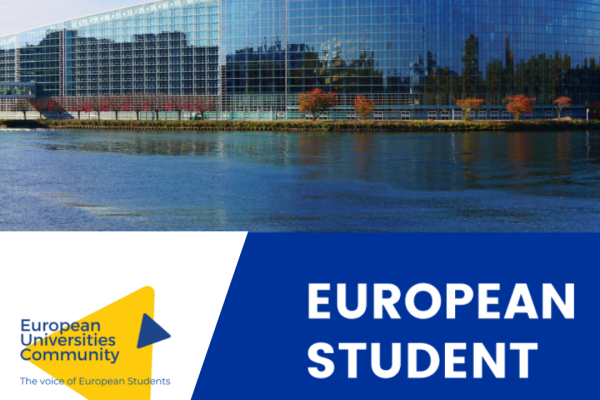Six CHARM-EU students have been selected to participate in #ESA23! The European Student Assembly (ESA) is one of the flagship projects of the European Universities Community (EUC), bringing together over 200 students from most European University Alliances. #ESA23 will be held in person at the European Parliament in Strasbourg from May 31st to June 2nd.

Constanze Sophie Connearn, short Conny, and Hazel Byrne are both enrolled in CHARM-EU Master’s in Global Challenges for Sustainability. They have been chosen to participate in #ESA23 alongside fellow CHARM-EU students Diana Laborda Jou, Mehjubin Kizhisseri, Adrian González Candele, and Take Wester.
A passion for European policy
Conny, who “has always been passionate about change and European policy” was highly motivated to apply to ESA and has been delighted to be selected. She is currently in phase 2 of the Master’s, where she has chosen the Life and Health track. Therefore, the Health Panel – one of ten debating topics available at #ESA23 – has been a natural fit for her: “I was able to bring forward a topic I have worked on within my first module: multi-barriers for people seeking several health services.” After working on it extensively, Conny is eager to use the research and work she has done within CHARM to work on real policy solutions.
Besides presenting her topic and working on creating an informed policy brief for the EU, Conny is also excited to meet new people and explore the city: “I am looking forward to connecting and working with many other engaged students from across Europe to discuss current issues, visiting the city of Strasbourg and seeing the European Parliament.”
Having an impact
Hazel, who is also currently in phase 2 of the Master’s, is also looking forward to “meet all the individuals I have worked with online throughout the preparatory phase of the ESA.” Her interest in ESA was sparked by an assessment she had during the phase 1 sustainability module: “We composed our own policy brief based on a topic of our choice. This got me interested further into policy and the impact of European strategies on the future of agriculture and rural development.”
The 25-year-old student from Ireland is a Marketing, Innovation and Technology graduate from Dublin City University. She especially appreciates the wide range of backgrounds and experiences brought to the table by the various students and expects all of those to “contribute towards the policy recommendation creation, something I have been passionate about prior to the masters, but especially since focusing on the Food track this past semester.”
The European Student Assembly
The main objective of ESA is to debate current issues, draft political recommendations for the future of Europe, and advocate them among stakeholders and decision makers. The Assembly is entirely designed and implemented by a steering committee composed of students and academic and non-academic staff members from different higher education institutions.
The participating students from different countries, backgrounds, fields, and levels of study have all been recruited for their engagement and motivation. The ESA provides an opportunity for them to voice their opinions and ultimately hopes to encourage them to get involved in European politics.
Participants of #ESA23 will produce a collection of recommendations on ten debating topics, ranging from the question of deliberate versus representative democracy to European foreign and defense policy or the issue of fair and sustainable access to energy across the continent.
Thank you to our students
This article would not have been possible without the contributions from Conny and Hazel. You, and everyone else involved, have a great time at #ESA23!